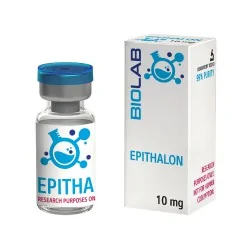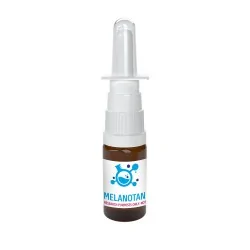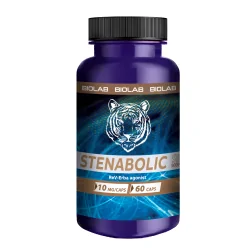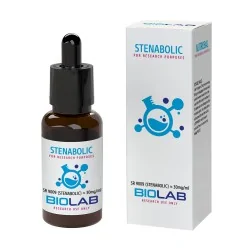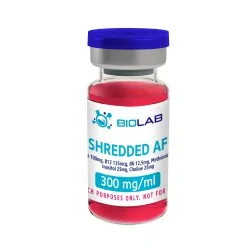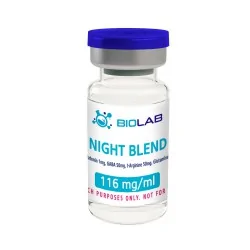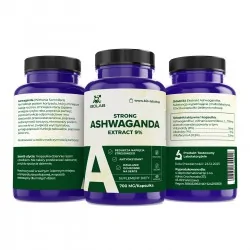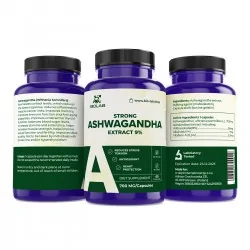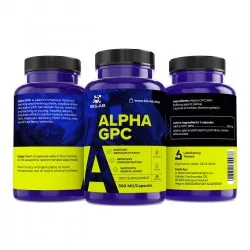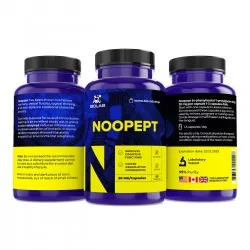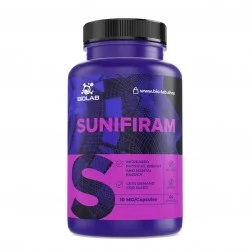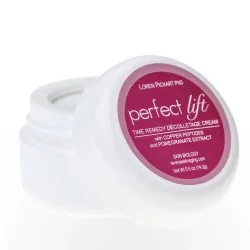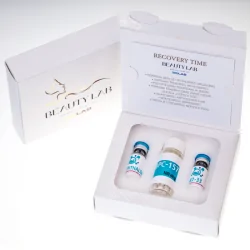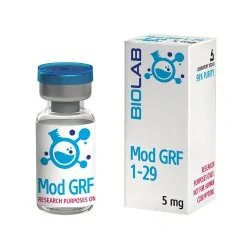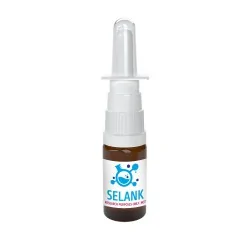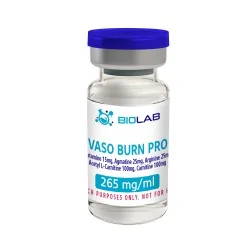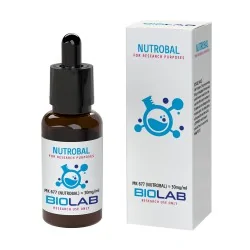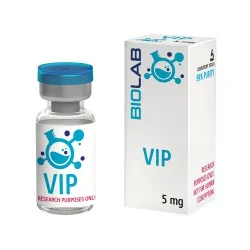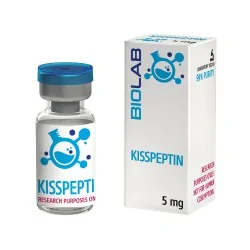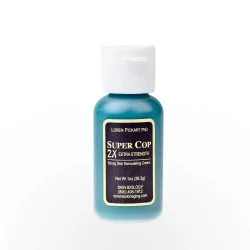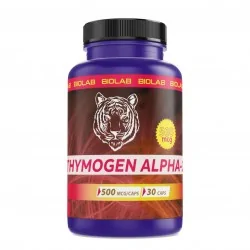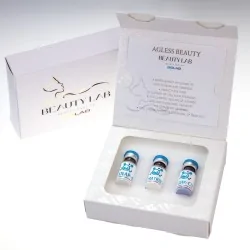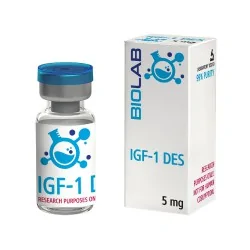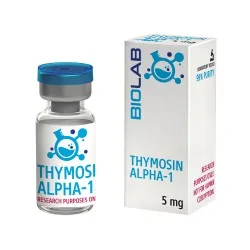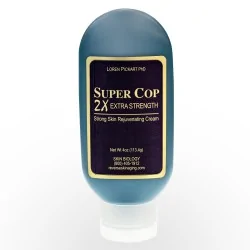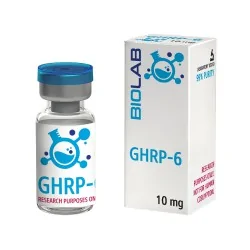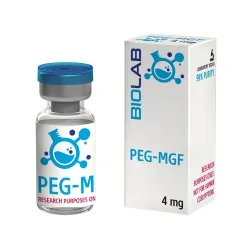-
Peptides
Peptides
back
-
- show all
-
-
Purpose
Return
- Peptides for bodybuilding
- Biomimetic peptides
- Peptides for the gym
- Peptides for bulk
- Natural peptides
- Peptides for joints
- Peptides for reduction
- Peptides for fat burning
- Peptides for weight loss
- Peptides for the muscles
- Peptides for regeneration
- Peptides for libido
- Peptides for injuries
- Peptides for athletes
- Peptides in tablets
- Peptides in injection
- Spray peptides
-
Type
Return
- BPC 157
- hgh
- ghk-cu
- ghrp-6
- ghrp-2
- grf
- tb-500
- oxytocin
- semax
- melanotan
- pt-141
- epithalon
- selank
- thymosin
- cjc-1295
- ipamorelin
- peg-mgf
- adamax
- kisspeptin
- dsip
- sermorelin
- n-acetyl
- arg-bpc
- thymalin
- 5-amino 1MQ
- alarelin
- mots-c
- igf-1 Lr3
- IGF DES
- GHRP2
- Fragment
- CJC DAC
- Adamax
- Cortagen
- Snap 8
- B7-33
- Melanotan 2
- Selank
- Thymosin alpha 1
- Mots
- VIP
- LL-37
- Livagen
- P-21
- KPV
- Ara 290
- L21
- Acth 1-39
- matrixyl
- TRH
- Larazotide acetate
- glp-1
- GC-1 SOBETIROME
- TB-4 FRAG+BPC-157 ARG
- AOD-9604
- cardiogen
- prostamax
- pancragen
- bronchogen
- retatrutide
- Thrombin peptide Tp508
- SLU-PP-332
- LIPOTROPIN
- THYMOGEN ALPHA-1
- Nutrobal
-
Purpose
Return
-
Peptide calculator
-
- show all
-
- Sarms Sarms back
-
- show all
-
Produkty
- Amino acids Amino acids back
-
- show all
-
Aminokwasy
-
- show all
-
Produkty
- Supplements Supplements back
-
- show all
-
Supplements
-
Purpose
Return
- Weight Loss Supplements
- Supplements for memory and concentration
- Energy supplements
- Hair and nail supplements
- Cholesterol supplements
- Supplements for the complexion and skin
- Sleep supplements
- Gym supplements
- Supplements for reduction and sculpture
- Eye and vision supplements
- Supplements for stress and nerves
- Supplements for regeneration and fatigue
- Strength and fitness supplements
- Joint supplements
- Liver supplements
- Acne Supplements
- Kidney supplements
- Knee supplements
- High blood pressure supplements
- Cellulite supplements
- Bone supplements
- Tendon supplements
- Supplements for potency and libido
- Dopamine supplements
- Serotonin supplements
-
Type
Return
- Ashwagandha
- Omega 3
- Vitamin D3
- Magnesium citrate
- N-Acetylcysteine
- Biotin
- Collagen
- L-Theanine
- 5-Hydroxytryptophan
- Forskolin
- Resveratrol
- Coenzyme Q10
- PQQ
- Rhodiola rosea
- Canna
- Kava Kava
- TUDCA
- Cholinolytics
- berberys
- inozytol
- sodium butyrate
- lactoferrin
- selenium
- cordyceps
- Quercetin
- lions mane
- glycine
- curcumin
- alpha lipoic acid
- shilajt
- apigenin
- dim
- chasteberry
- baikal thyroid
- reishi
- pycnogenol
- phosphatidylserine
- chromium picolinate
- astragalus
- nad+
- tulsi
- egcg
- magnesium citrate
- nalt
- pana ginseng
- synephrine
- zinc picolinate
- cherry tart
- magnesium taurate
- magnesium l-threonate
- adaptogens Return
-
Purpose
Return
-
- show all
-
Produkty
- Nootropics Nootropics back
-
- show all
-
Nootropy
-
- show all
-
Produkty
- Beauty Beauty back
-
- show all
-
- Preparation Preparation back
-
- show all
-
- Pre-workouts
- Slimming preparations
- Preparations for the joints
- Acne preparations
- Preparations to strengthen the body
- Preparations for the sinuses
- Erection preparations
- Hair preparations
- Preparations for the liver
- Nail preparations
- Sleep preparations
- Intestinal preparations
- Circadian rhythm disorders
- Preparations for the heart
- Preparations for libido
- Preparations for malnutrition
- Preparations for sedation
- Preparations for strengthening
- Preparations for the kidneys
- Fat burning preparations
- Preparations to reduce appetite
- Preparations for growth
- Preparations for depression
- Preparations for energy
- Bone preparations
- Preparations for muscle mass
- Skin bronzing preparations
- Skin rejuvenating preparations
- Preparations for the condition
- Preparations for the work of the brain
- Anti-aging preparations
- Preparations for regeneration
- Growth hormone replacements
- Injury preparations
Peptides
Chemical organic compounds formed by connecting two or more amino acid molecules with a peptide bond. In our body, peptides are produced during the biosynthesis of proteins in a process called translation, and they can also be obtained through chemical synthesis.
Showing 1-12 of 106 item(s)- Peptides
-
- Purpose
- Peptides for bodybuilding
- Biomimetic peptides
- Peptides for the gym
- Peptides for bulk
- Natural peptides
- Peptides for joints
- Peptides for reduction
- Peptides for fat burning
- Peptides for weight loss
- Peptides for the muscles
- Peptides for regeneration
- Peptides for libido
- Peptides for injuries
- Peptides for athletes
- Peptides in tablets
- Peptides in injection
- Spray peptides
- Type
- BPC 157
- hgh
- ghk-cu
- ghrp-6
- ghrp-2
- grf
- tb-500
- oxytocin
- semax
- melanotan
- pt-141
- epithalon
- selank
- thymosin
- cjc-1295
- ipamorelin
- peg-mgf
- adamax
- kisspeptin
- dsip
- sermorelin
- n-acetyl
- arg-bpc
- thymalin
- 5-amino 1MQ
- alarelin
- mots-c
- igf-1 Lr3
- IGF DES
- GHRP2
- Fragment
- CJC DAC
- Adamax
- Cortagen
- Snap 8
- B7-33
- Melanotan 2
- Selank
- Thymosin alpha 1
- Mots
- VIP
- LL-37
- Livagen
- P-21
- KPV
- Ara 290
- L21
- Acth 1-39
- matrixyl
- TRH
- Larazotide acetate
- glp-1
- GC-1 SOBETIROME
- TB-4 FRAG+BPC-157 ARG
- AOD-9604
- cardiogen
- prostamax
- pancragen
- bronchogen
- retatrutide
- Thrombin peptide Tp508
- SLU-PP-332
- LIPOTROPIN
- THYMOGEN ALPHA-1
- Purpose
Filter By
Price
Price
-
€14.00 - €349.00
Active filters
What are peptides?
Peptides are biologically occurring chemical compounds that are the basic building blocks of living organisms and perform many important functions - both in animals and in the human body. They are created from amino acids, linked together by a peptide bond.
In the case of peptides, the types depend primarily on how many amino acids make up a given peptide. Thus, we have types of peptides called oligopeptides (shorter), polypeptides or proteins (longer). Due to their properties, peptides have found applications in cosmetics, aesthetic medicine, and bodybuilding and strength sports, among others, as a healthy alternative to anabolic steroids.
How are peptides created?
Peptides can be created in two different ways: naturally (through protein biosynthesis in organisms) or synthetically in the laboratory. The latter method makes it possible to create an unlimited number of peptides using either liquid-phase or solid-phase synthesis techniques, which is benefiting science today.
Classification of peptides - ribosomal and non-ribosomal peptides
Fishosomal peptides are divided into several classes, depending on how they are produced. They most often act as hormones and so-called signal molecules in organisms. Ribosomal peptides include, for example, intestinal peptides, opioid peptides or pancreatic peptides. Interestingly, some such peptides are antibiotics.
Non-ribosomal peptides, on the other hand, are produced by enzymes and often appear in plants, fungi and unicellular organisms. The most common non-ribosomal peptide is glutathione, which exhibits strong antioxidant activity.
Functions of peptides
As we have already mentioned, peptides' properties are quite broad and have many functions in organisms. Among other things, they are able to stimulate the body to produce the substances it needs, and then be quickly excreted by the body.
What else can peptides do for you?
- promote muscle tissue growth and fat loss,
- promote post-workout recovery through positive effects on sleep,
- promote growth hormone production, or somatropin (GH),
- have anti-aging (antioxidant)
- enhance immunity,
- lower sugar and cholesterol levels,
- give energy.
Of course, they don't give you the same instant results as steroids, and you should be set on taking them for the long term - in the case of peptides, you'll get results when you arm yourself with patience and diligence. However, when it comes to peptides, the action is much less invasive for the body, and, above all, they do not cause dangerous side effects. Thus, they can be successfully called a natural athlete's enhancement.
Peptides store - how to choose so as not to regret?
If you are going to stock up on peptides, do not buy them from the first better source. Although peptides themselves are a natural substance, it's good to be sure you're getting exactly what you pay for. It's also worth adding that in the case of peptides, price shouldn't be the only selection criterion, and one that's suspiciously low may even be a wake-up call.
At Biolab, we focus on honesty with the consumer and research. We believe that only concrete numbers can testify to the quality of our products. That's why on our site you will find details of the studies conducted and access to their documentation. To read more about it, take a look at the Research tab. If you have additional questions, you can always take a look at our forums as well.
How to store peptides?
To preserve the unique properties of peptides and be confident in their effectiveness, proper storage is essential. Proper storage practices can maintain peptides for years and protect them from contamination, oxidation or degradation. So it's a good idea to take an interest in this topic and know how to store peptides to prolong their stability and ensure the best results.
When you get peptides, the most important thing is to store them cool and away from light. As long as you intend to use them immediately or within the next few days, short-term refrigeration of the peptides at 4 receiving the peptides is necessary to keep them cool and away from light. If the peptides will be used immediately or over the next few days, weeks or months, short-term refrigeration at 4°C is generally acceptable.
Slightly easier is the case with freeze-dried peptides. Peptides in this form remain stable at room temperature for several weeks or even longer. In case you plan to use them within a few weeks or months, such storage should be sufficient.
Longer storage of peptides (from a few months to a few years) is also possible, but in that case a freezer and temperatures of -80°C are necessary to help maintain their stability. However, avoid repeated freeze-thaw cycles, as this increases the risk of peptide degradation, as well as so-called non-freezer freezers - temperatures in this type of equipment can fluctuate.
Müssen Peptide im Kühlschrank aufbewahrt werden?
Dissolved (that is, already dissolved) peptides should be kept in the refrigerator. A similar rule also applies to cosmetics with peptides. Not only low temperature is important here, but also protection from light and shock, hence it is not recommended to keep peptides on the refrigerator door.
What are peptides made of?
Peptides are formed from amino acids, linked together by a peptide bond. For a peptide to form, there must be at least two amino acids. This process can occur naturally or synthetically, i.e. in laboratory conditions, through protein synthesis.
What to mix peptides in?
Peptides should be diluted in bacteriostatic water or saline solution, which is added to the vial with the powdered peptide. It is worth remembering that peptides should not be shaken or intensively mixed. Instead, it is advisable, for example, to roll them gently in the hands.
Newsletter
SIGN UP AND STAY UP TO DATE!
We specialize in wholesale and retail supply of high quality peptides.
((modalTitle))
((confirmMessage))
((title))
- Preparation Preparation back
- Beauty Beauty back
- Nootropics Nootropics back
- Supplements Supplements back
- Amino acids Amino acids back
- Sarms Sarms back
-

